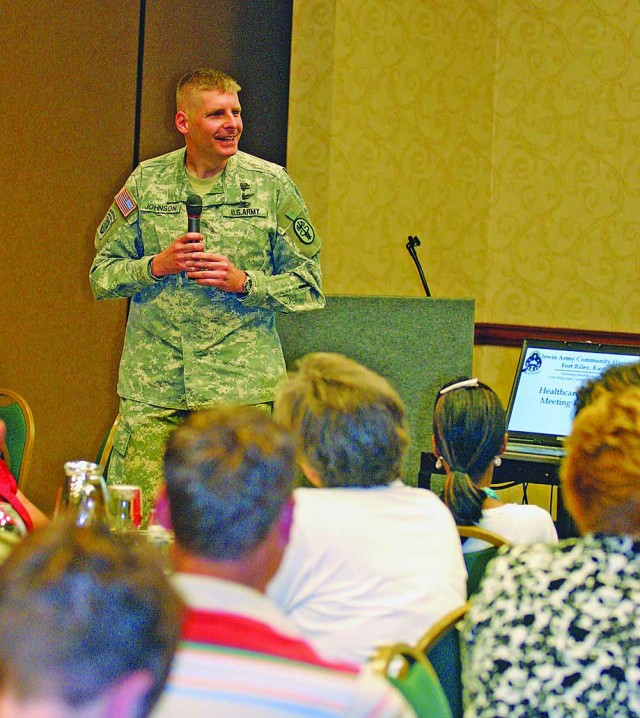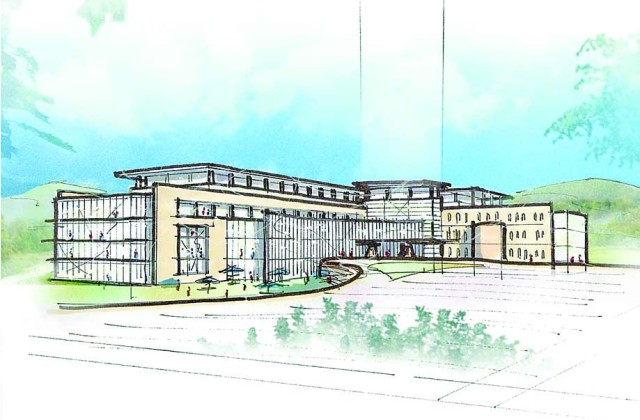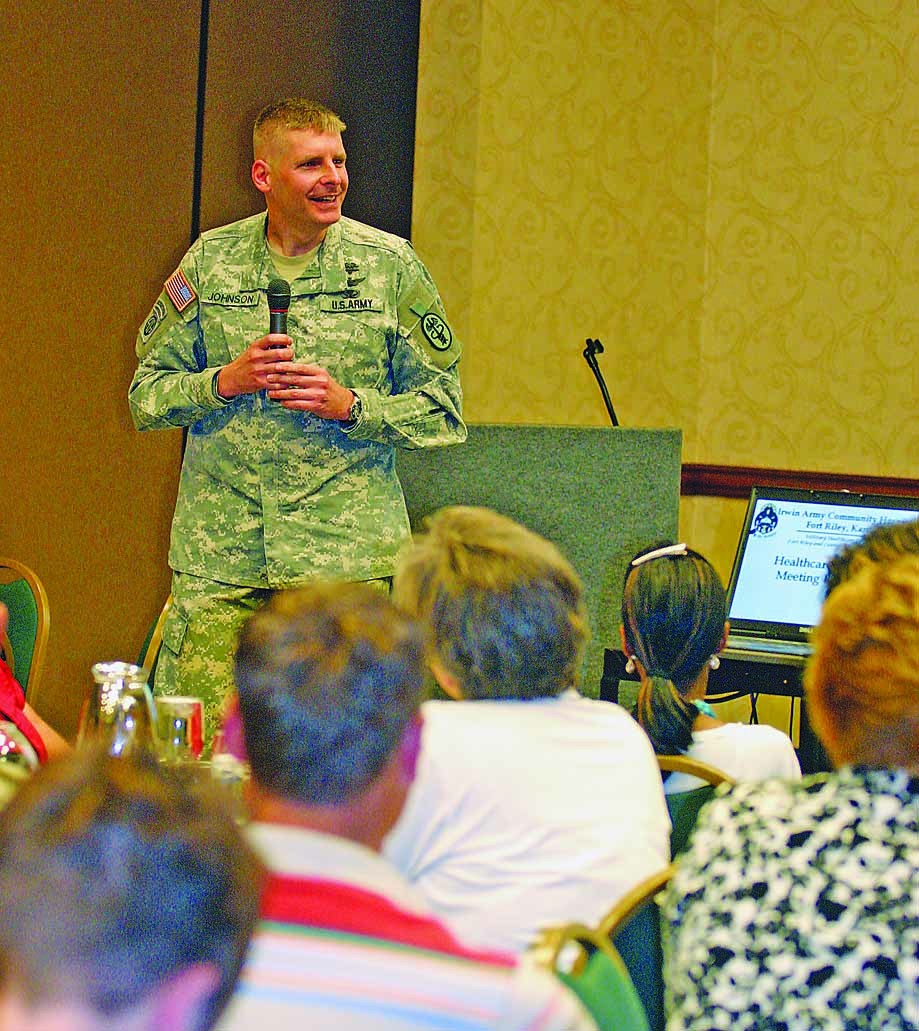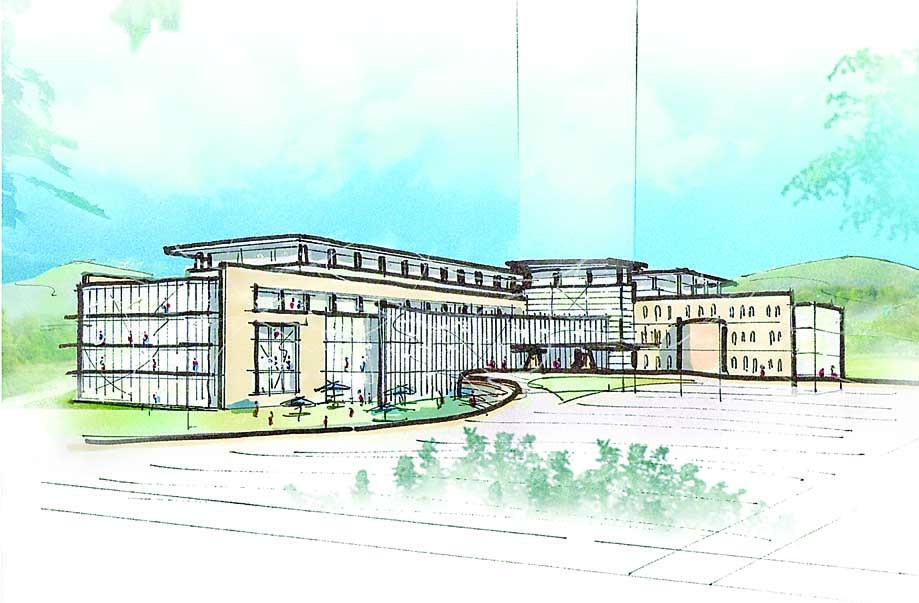FORT RILEY, Kan. - Irwin Army Community Hospital's commander spoke with community members June 25 during the Junction City Military Affairs Council. During his 30-minute presentation, Col. Jeffrey Johnson relayed the vision to meet Fort Riley's health care needs for the next 40 to 50 years. That vision includes a new hospital and the Warrior Transition Complex, which is being built next to the new hospital.
When Fort Riley asked for the funds of $404 million to build the new hospital a year ago, Congress made some stipulations, including that it must be done in five years.
For the past year architects have been working on the design phase of the hospital, Johnson said, a total of $40 million has been spent. The new design of the hospital will help handle the increase of 20,000 patients estimated to happen between 2005 and 2011, he said.
The new Fort Riley hospital will offer a level of care similar to that currently available. The 44 bed inpatient capacity will remain unchanged. The total square footage of the new facility will increase by about 170,000 square feet. There will be 20 medical/surgical bays, 16 labor and delivery rooms as opposed to the current eight and eight inpatient psychiatric beds. There also will be a refractive eye center and the emergency room will have urgent care capabilities.
Johnson described the aesthetics of the new hospital with a limestone exterior indigenous to this area, plenty of glass to allow for sunlight and healing, and a sunken garden as a respite for patients and staff.
"There is value in the hospital being visible from Interstate Highway 70 as it will be a flagship hospital for all to see," said Johnson.
The new hospital will be where the Sacco Softball Complex is currently located. The softball complex will be de-memorialized and relocated on Fort Riley. The architecture and design of the new hospital is underway with tentative plans and drawings emerging.
Along with increasing space, Johnson said, more than 300 individuals are being hired to help with the population increase. The individuals will include doctors, nurse practitioners, social workers and specialty care providers.
As employees are being hired for Fort Riley, Johnson said, the goal is to bring in people from outside of the region.
"Taking providers from those (hospitals) upon whom we depend, does not do anyone any good," Johnson said. IACH recently recruited an internal medicine physician whose husband was a radiologist. "Because we did not have a job vacancy for the radiologist, we referred his resume and credentials to one of our partner hospitals who hired him." "That is what right looks like," Johnson said.
Along with the new hospital other medical facilities being built on Fort Riley include the Warrior Transition Complex, a primary care clinic and a traumatic brain injury clinic.
Many of Fort Riley's wounded warriors suffer from non-visible injuries such as traumatic brain injuries or post traumatic stress disorder. A TBI clinic is being developed on Custer Hill to treat concussive type injuries. The TBI clinic is scheduled to open in June 2010. The 52,000 square foot Soldier and Family Care Clinic on Custer Hill is scheduled for completion in June 2010, and the Warrior Transition Complex has a planned completion date of March 2010.
IACH Public Affairs contributed to this story.




Social Sharing